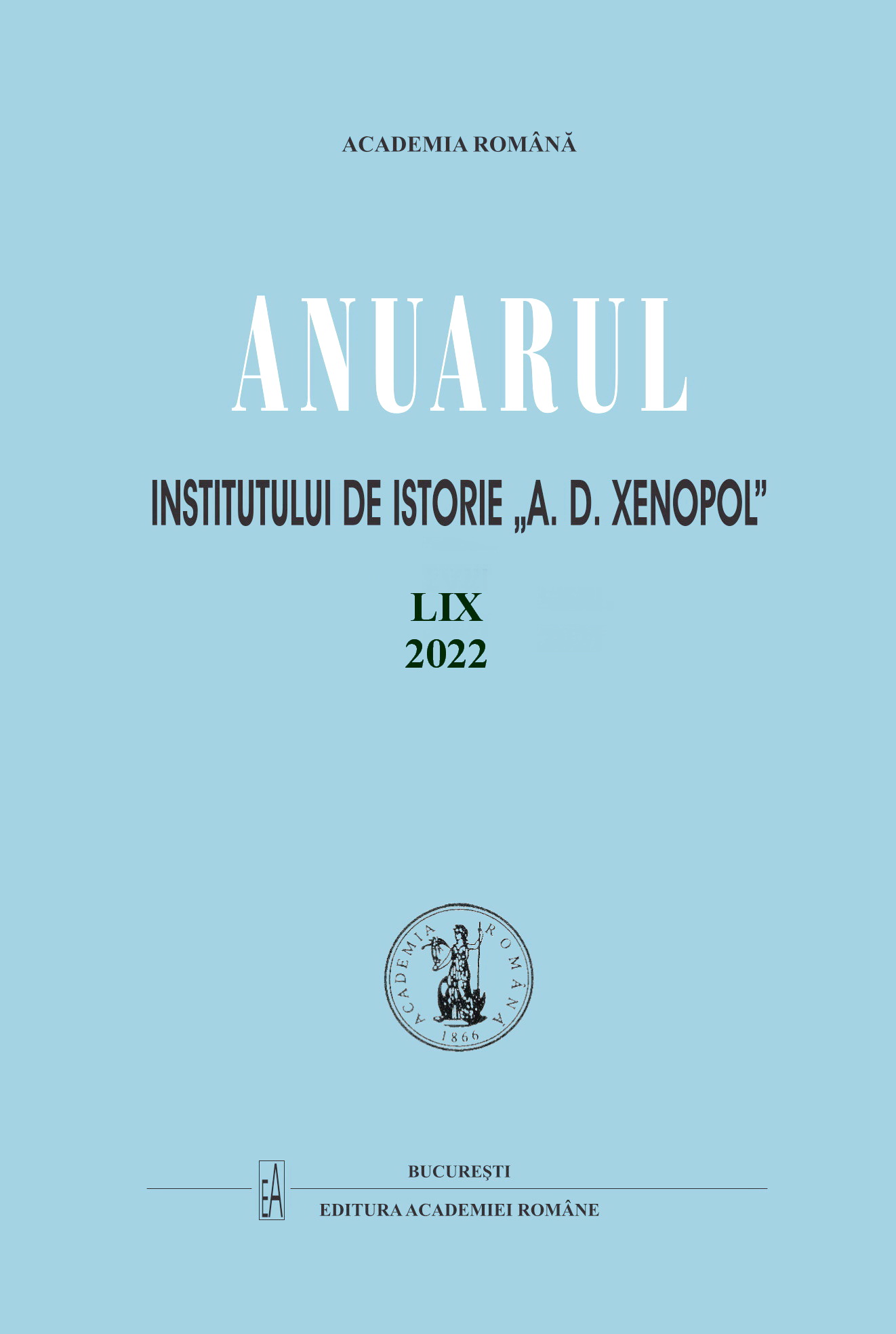SECVENȚE DIN ACTIVITATEA SPITALELOR RUSEȘTI PREZENTE ÎN ORAȘUL IAȘI ÎN PERIOADA RĂZBOIULUI DE INDEPENDENȚĂ
SCENES FROM THE ACTIVITY OF THE RUSSIAN HOSPITALS PRESENT IN THE CITY OF IAȘI DURING THE INDEPENDENCE WAR
Author(s): Raluca-Nicoleta PlianSubject(s): History, Social history, 19th Century
Published by: Editura Academiei Române
Keywords: Romanian-Russian Convention; The City of Iași; The Red Cross Society;
Summary/Abstract: The city of Iaşi played a significant role during the Independence War as early as the beginning of the conflict. It was one of the three points used by the Russian army to enter Romanian territory. In the city, Russian hospitals functioned where Russian soldiers were treated; simultaneously, it represented one of the primary points for evacuating wounded Russian soldiers. Article XIX of the Special Convention signed in April 1877 referred to the spaces where settle-ments would be active for treating wounded soldiers. During the conflict, many articles of the Special Convention required clarifications to be enforced, as the article considered within this text.At the beginning of the conflict, there was no plan for evacuating the wounded from the battlefield. As the Russian army approached the Danube, the evacuation issue became urgent; a Commission was summoned, and it was presided by General Kataly. Following the Commission՚s first session, it was decided to establish an Evacuation Commission in Iaşi, which functionedregularly from 15/27 July 1877; it was in permanent contact with the Russian hospitals and dealt with the regulation of patients’ transports.Of the 39 Russian hospitals that functioned in 1877-1878, hospital No. 45 in Iaşi was the only one to have maintained the same location; the rest moved even 5 or 6 times. In February 1878, the Romanian commissary in Iaşi – N. Rosetti-Bălănescu – conveyed to the general commissary George M. Ghica that in Iaşi, at that point, three military hospitals were active (i.e., hospitals No. 47, 74, and 81), a permanent barrack of the Red Cross located in Copou, and an evacuation barrack near the railway station. At the war’s end, the Russian Red Cross Society donated the hospital established on the Copou plateau to the community of Iaşi. As it was built on private land, contractual clauses had to be observed, and the communal Council decided to receive the donation but sell the material and building. Following several failed attempts to auction the material, they accepted the offer of the owner of the land where the lazaretto was built; hence, in July 1879, Emil Castan became the owner of the building where the Russian Red Cross Hospital functioned.According to Articles II and III of the Convention, the special Commissaries ensured communication between the Russian and Romanian authorities. According to these articles, General Nepocoiciţchi requested the appointment of commissaries in the cities where military hospitals were established. The Romanian general commissary was in charge of the communi-cation between the management of the Russian hospitals and Iaşi authorities. Still, even the city’s mayor or the county prefect chimed in, even the Russian councillor in Iaşi, Al. Iacobson. In the relationship between the authorities of the Russian military hospitals and the city authorities, the interests of both patients and the community of Iaşi were considered.The Convention primarily regulated how the Romanian authorities had to assist the Russian soldiers transiting the Romanian territory. To prevent any discomfort created by their presence, new orders were issued to address all situations generated by the presence of Russians. No Article of the Convention regulated the billet of the Russian medical and health personnel; their accommodation was included in the Circular Order No. 8770 of 30 April 1877. This Order stated the payment of rent or the existence of an agreement between the owner and the person in question. In the case of misunderstandings after contracting rent or renting out a building for the function of a hospital or the failure to observe a services contract by an inhabitant, they could make a complaint to the City Hall. Still, it could not solve the issues, only take note of the matter.
Journal: Anuarul Institutului de Istorie »A.D. Xenopol« - Iaşi
- Issue Year: LIX/2022
- Issue No: 59
- Page Range: 103-119
- Page Count: 17
- Language: Romanian

